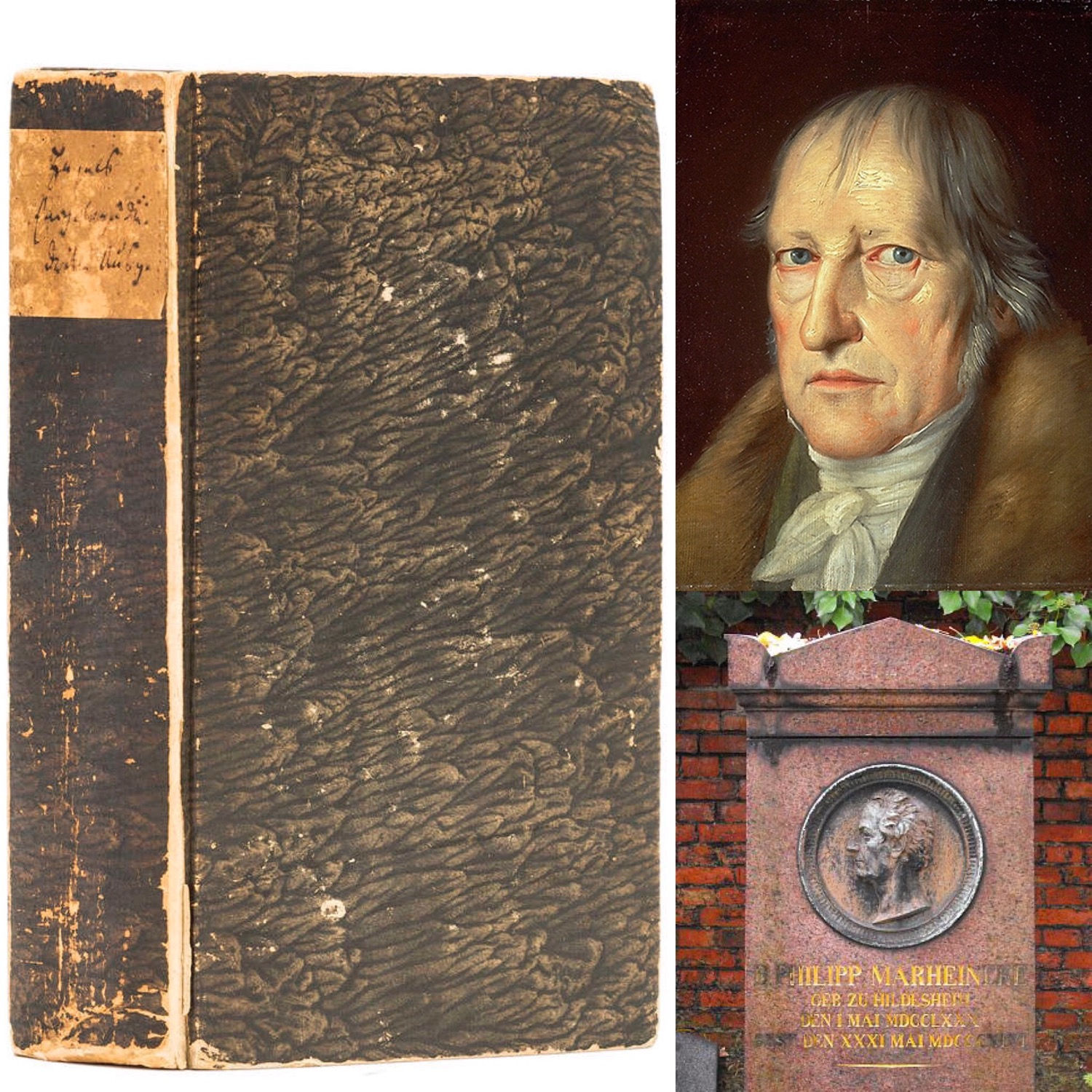Encyklopädie der philosophischen Wissenschaften im Grundrisse [Encyclopedia of the Philosophical Sciences]
Georg Wilhelm Friedrich Hegel
Heidelberg, 1830
Presentation copy of Hegel's last book - a potent elucidation of his whole philosophical system. The third and definitive edition - with improvements and a new foreword by Hegel. Preceded by two smaller editions in 1817 and 1827, he and his contemporaries considered the Encyclopedia of the Philosophical Sciences to be his most important work. Hegel prepared it for use during his lectures, turning the numerous thesis paragraphs into points of exploratory discussion.
Contemporary paper-covered boards with manuscript label to spine. Corners bumped, some scattered rubbing, else Very Good. Gothic letter text – the pages quite clean with just occasional light browning. A nice copy of this key work of German Idealism. Inscribed to theologian, Philip Marheineke on front free endpaper: "Dem Herrn Dr. u. Professor Marheinike als Zeichen seiner innigen Hochachtung und Freundschaft der Verfasser" ["To Dr. and Professor Marheinike as a mark of the author's deepest respect and friendship"]
Presentation copies from Hegel are a generational rarity - I can locate only one other inscribed work at auction in the last 30 years and none in the several decades preceding.
Philip Marheineke(1780-1846) was a prominent colleague of Hegel’s, an editor of his collected works, and an eminent member of the Hegelian Right – those seeking to utilize their master’s philosophy to justify Church orthodoxy. Marheineke had been a professor since 1805, and in 1811 accepted a position at the newly founded Humboldt University of Berlin, where Hegel would accept a professorship in 1818. The two were so close that Marheineke was chosen to give one of the two benedictions after Hegel’s death. After Marheineke’s death in 1846, the book was inherited by theology student K. Schultze(his inscription on the endpaper and title page); in 1905 he gave it to the Berlin philosopher Ferdinand Jakob Schmidt(1860-1939) with a gift inscription on the endpaper: "dem Pfleger u. Forderer von Hegels Ideen"["the custodian and supporter of Hegel's ideas"]. Schmidt had done his doctorate on Hegel in 1888 - a neat text correction on page 42 of this copy is made in his hand.
Whether one supported or rejected his philosophy, Hegel’s significance was incontestable - he stands firmly within the pantheon of Western philosophy as one of its greatest systematic thinkers.
‘Writing in 1946, [French philosopher]Merleau-Ponty declared that “all the great philosophical ideas of the past century — the philosophies of Marx and Nietzsche, phenomenology, German existentialism, and psychoanalysis — had their beginnings in Hegel.”(Merleau-Ponty, Hegel’s Existentialism, p. 63) … Hegel’s work provides the background against which the major developments in European ideas since 1831 have emerged, and for many of the philosophers to be discussed in this book, only once they had come to terms with Hegel could their own thinking begin … he decisively influenced the thinking of those who came after him … so much European philosophy has been written by developing different aspects of his thought, and by providing competing approaches to problems in his terms.’(An Introduction to Modern European Philosophy, Stern)
A truly scarce and remarkable biblio-treasure with an electrifying provenance.
[philosophy, history, signed]
top of page
$48,900.00Price
bottom of page

